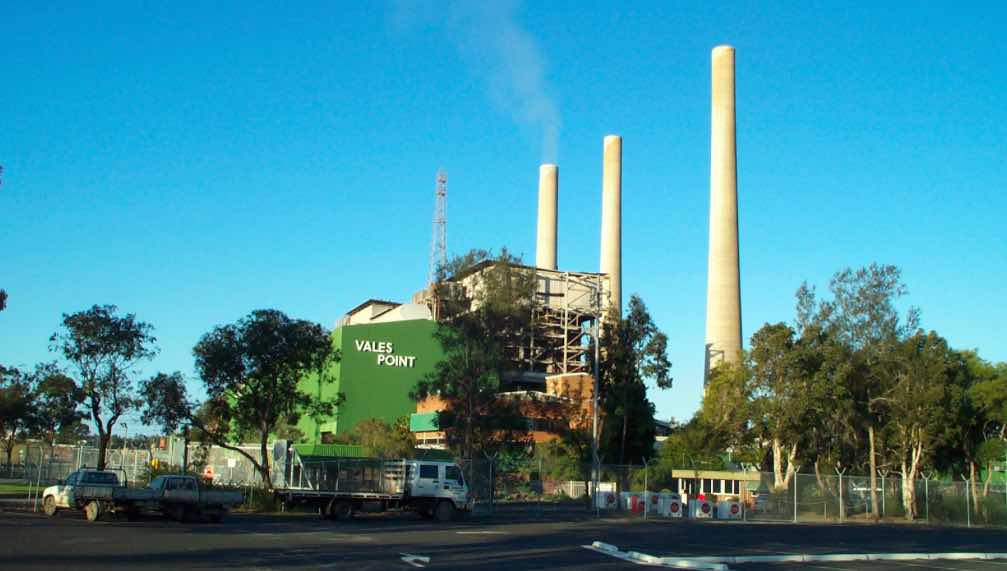Prime minister Scott Morrison has agreed to fast-track the assessment of three NSW projects shortlisted for funding under the federal Coalition’s controversial Underwriting New Generation Investment program, including an extension of the Vales Point coal generator proposed by Trevor St Baker.
The agreement is contained in the Memorandum of Understanding signed between Morrison and NSW premier Gladys Berejiklian earlier this month, which was basically a deal to support grid upgrades in return for a NSW commitment to increase the amount of gas it makes available to the domestic market – widely seen as a push to open up the hotly contested Narrabri gas fields.
The joint announcement by Morrison and Berejiklian also mentioned ensuring sufficient coal supplies for the troubled Mt Piper coal generator near Lithgow, to help ensure it keeps operating to 2042. What the announcement did not mention was an agreement on the UNGI projects, including the Vales Point extension, that was hidden in the MOU.
The MOU – dated January 31, 2020 – says the Commonwealth will ensure that all NSW projects shortlisted under phase one of the UNGI scheme are assessed in a timely manner, and commits the Commonwealth to supporting three NSW projects.

As it happens, only three NSW projects made the shortlist: a gas plant in Port Kembla, a renewables and pumped hydro scheme in the north of the state proposed by UPC, and St Baker’s proposed upgrade of the Vales Point coal generator in Lake Macquarie.
It’s not a full commitment to fund those projects, as it is subject to further negotiations on the nature of the “underwriting”. But as we have written in the past, the guidelines to those underwriting agreements are so vague, and with no declared costing cap, that it could amount to anything.
The agreement notes that if none of the three shortlisted projects passes muster, or reaches financial close, then the Commonwealth will find another project in NSW to fit the bill in a promise for “like for like” generation assets.
St Baker has been a vocal opponent of renewables, and a generous donor to the LNP and – more recently – to the Labor Party, too. He and his business partner Brian Flannery bought Vales Point for just $1 million from the NSW government, and have since turned it into a money-making machine, earnings profits of hundreds of millions of dollars and increasing its value to $730 million.
St Baker wants more government support to help defray the cost of “modernising” the 1,320MW plant, to improve its output and extend its operating life.
The Vales Point power station in NSW has also been registered under the Morrison government’s emissions reduction fund in August for a proposal to improve some of its turbines.
News of the commitment to fast-track the assessment of the Vales Point extension comes just days after the Coalition announced $4 million for a feasibility study into a new coal-fired generator at Collinsville, in north Queensland.
National Party MPs and Senators have been vocal in their support of new coal generators in Queensland and elsewhere, and are threatening to “cross the floor” if their demands are not met.
It also comes as a leaked report reveals that trying to keep open the Liddell coal generator beyond its planned 2023 closure date would cost $300 million for just three years, and for just two of the four units. Even then, there is a real risk that it would make grid reliability worse, rather than improve it.
Progress on the UNGI projects has been painfully slow. After an initial tender designed to try to secure some contracts before the May election, which the Morrison government assumed it would lose, little has been done.
Two projects – a gas generator in Queensland and another fast-start gas generation plant in Victoria – were selected in December from the 12 projects shortlisted in March, but they have yet to agree, or at least reveal, the nature and scope of the funding, or a timeline for the two projects.
The energy industry, analysts, and regulators complain that the delays over UNGI projects are causing problems for other investors and delaying billions of dollar of other potential projects, because it is impossible to decide on a minimum 30-year investment that could cost hundreds of millions of dollar without knowing which other projects will be subsidised by the government.









